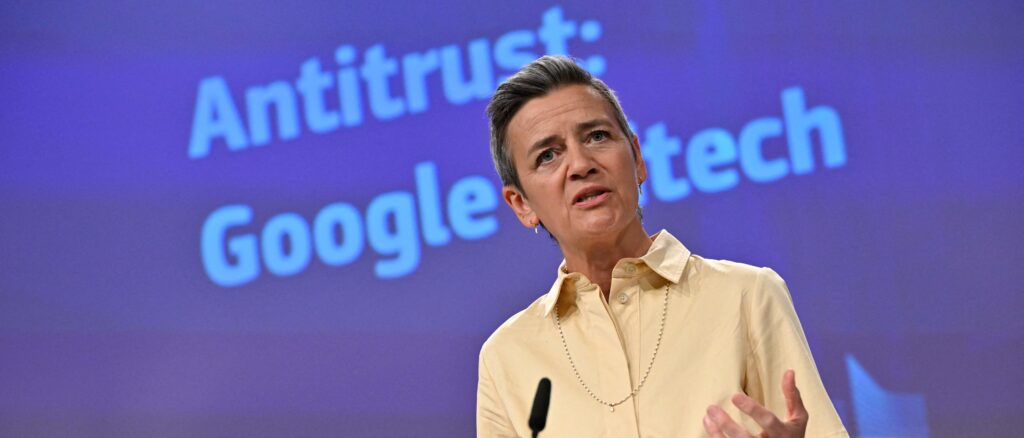European Union (EU) regulators struck Google with allegations of antitrust violations over its advertising business, which may result in a company break-up, according to a statement from the commission.
The European Commission (EC) released a statement Wednesday with preliminary finds claiming Google violated antitrust regulations in the advertising technology industry (adtech). Adtech revenue made up 79% of Google’s total revenue in 2022, according to Reuters. The commission’s investigation into the tech giant has been happening for over two years.
If the company is forced to sell part of its adtech branch, Google could be severely hampered in its revenue model in the future. Sources of revenue including search services, Gmail, Google Play, Google Maps, YouTube adverts, Google Ad Manager, AdMob and AdSense totaled $224.5 billion in 2022, according to Reuters. (RELATED: Google Suspends Chinese Shopping App Over Security Concerns)
Behavioral changes by Google in the sphere are “likely to be ineffective to prevent the risk that Google continues such self-preferencing conducts or engages in new ones,” according to the EC’s statement. The alleged wrongdoing by Google was “aimed at giving AdX a competitive advantage and may have foreclosed rival ad exchanges,” which would have “reinforced Google’s AdX central role in the adtech supply chain and Google’s ability to charge a high fee for its service.”
We take issue with Google favouring its own online display advertising technology services to the detriment of competing providers of advertising technology services, advertisers and online publishers.
Our preliminary view is that Google may have breached EU antitrust rules by… pic.twitter.com/rhuTC4fU80
— European Commission (@EU_Commission) June 14, 2023
The antitrust concerns relate to Google’s market dominance, according to Reuters. The tech giant controls a large part of digital advertising globally, with a 28% market share of ad revenue worldwide, the outlet reported.
“Our preliminary concern is that Google may have used its market position to favour its own intermediation services,” EC Executive Vice President Margrethe Vestager said in a statement Jun 13. “Not only did this possibly harm Google’s competitors but also publishers’ interests, while also increasing advertisers’ costs. If confirmed, Google’s practices would be illegal under our competition rules.”
No prosecution has resulted from the investigation so far, but potential charges loom. The EC in its statement laid out the consequences if a company is found in violation of its regulations: “If the Commission concludes, after the company has exercised its rights of defence, that there is sufficient evidence of an infringement, it can adopt a decision prohibiting the conduct and imposing a fine of up to 10% of the company’s annual worldwide turnover.”
Google attempted to settle the case roughly three months after the investigation began, Reuters reported in a separate article. Mediation ultimately failed due to the length of negotiations and an alleged lack of concessions by Google, according to the outlet.
In a statement, Google’s vice president of global ads Dan Taylor said the EC’s “investigation focuses on a narrow aspect of our advertising business and is not new. We disagree with the EC’s view,” the outlet reported.


